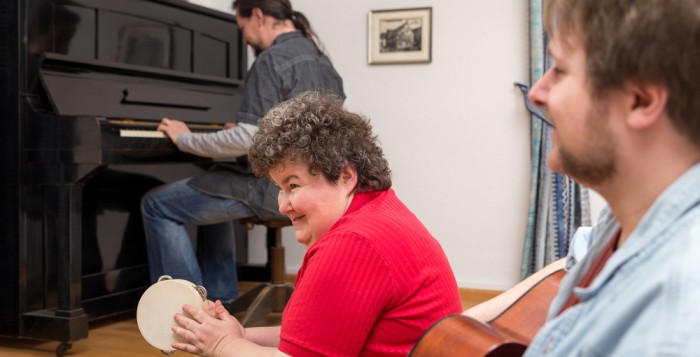March 2026 CI Forum Registration Now Open
The Office of Developmental Programs (ODP) announced that registration is now open for the March Certified Investigator (CI) Forum. The Temple University Harrisburg Certified Investigator Program and ODP will be facilitating Forums for Certified Investigators and others involved in the incident investigation process.
Please see ODPANN 26-018 for information on how to register and other important details.
Sponsor, Exhibit, and Advertise at the 2026 RCPA Conference!
Join RCPA as we host the 2026 Annual Conference Power in Purpose: Promoting Possibilities from September 29 – October 2 at the Hershey Lodge. The event is a highlight for the Pennsylvania behavioral health, brain injury, children’s, early intervention, intellectual and developmental disabilities, medical rehabilitation, and physical disabilities and aging provider communities. RCPA staff and the Conference Committee are excited to release this year’s Sponsors, Exhibitors, and Advertiser Brochure, which features many opportunities to get in on the action and network with providers. Booth self-selection will also be available for exhibitors and exhibiting sponsors. In order to be considered for self-selection, a completed contract with payment must be submitted.
 Network and Compete in Connections Hall
Network and Compete in Connections Hall
Connections Hall activities take place during the two busiest days of the conference, and many networking opportunities are available throughout the event. You’ll also be able to compete and have a chance to win “Best of Show!”
Exciting Sponsorship Opportunities
RCPA is privileged to have the backing of the finest organizations in the field for our conference. Through the use of sponsorship circles, RCPA is able to honor all supporting organizations.
Sign Up Now!
Sponsors, exhibitors, and advertisers who wish to be listed on the website, on the mobile app, and in the conference program must submit all materials by Tuesday, September 8.
 The association looks forward to welcoming you at the conference! Space and opportunities are reserved on a first-come, first-served basis, and no reservation is considered complete without payment. If questions remain, please contact Carol Ferenz, Conference Coordinator.
The association looks forward to welcoming you at the conference! Space and opportunities are reserved on a first-come, first-served basis, and no reservation is considered complete without payment. If questions remain, please contact Carol Ferenz, Conference Coordinator.ODP Shares Preparation Tools and Key Dates for Residential Provider PBC
The Office of Developmental Programs (ODP) announces the upcoming data submission window for Performance-Based Contracting (PBC) to Providers of Residential Habilitation, Life Sharing, and/or Supported Living services in the Consolidated and/or Community Living Waivers (residential services) for contract year 2026/27.
ODP will hold a training for the MyPBC Portal system for Residential Service Providers on Thursday, February 5, 2026. Providers may register to attend using the MyPBC Portal Training GoTo Webinar link or access the MyODP Performance-Based Contracting web page for more information.
Please view ODPANN 26-017 for more details.
ODP Announces EIM Dashboard Enhancements
The Office of Developmental Programs (ODP) has shared ODPANN 26-016. This communication announces enhancements to the EIM Incident Management Review Report and to the Incident Reporting Overview Dashboard and to provide advance notice that EIM will be unavailable to all users from 6:00 am ET until 6:30 pm ET on Saturday, February 7, 2026.
Please view the announcement for more details.
ODP Shares Supportive Housing Pilot Data
2026 CHC & OBRA Waiver Amendments and Renewals Released for Public Comment
The Department of Human Services (DHS) is making available for public review and comments the Office of Long-Term Living’s (OLTL) proposed amendment for the Community HealthChoices (CHC) waiver and the proposed renewal of the OBRA waiver. The proposed amendment of the CHC waiver and renewal of the OBRA waiver will be effective July 1, 2026.
DHS is proposing the following changes to the CHC waiver:
- Add a teleservice option to the following waiver services:
- Behavior therapy.
- Benefits counseling.
- Add language to specifically address teleservice delivery of waiver services and the Home and Community- Based Settings (HCBS) rule based on sections added to the waiver application.
- Remove and modify outdated language throughout waiver.
The proposed CHC waiver amendment and a summary of all revisions are available for review here.
Written comments regarding the proposed renewal to OBRA should be sent to the Department of Human Services, Office of Long-Term Living, Bureau of Policy Development and Communications Management, Attention: Keeley Anglin—CHC Waiver Amendment, P.O. Box 8025, Harrisburg, PA 17105-8025. Comments can also be sent via email. Use ”CHC Waiver Amendment” as the subject line. Comments received within 30 days will be considered in subsequent revisions to the proposed amendment.
DHS is proposing the following changes to the OBRA waiver:
- Add a teleservice option to the following waiver services:
- Behavior therapy.
- Benefits counseling.
- Revise outdated language regarding the OLTL quality improvement strategy and quality monitoring processes.
- Add language regarding the need for a Service Coordinator to reassess a participant due to a trigger event.
- Add language to specifically address teleservice delivery of waiver services and the Home and Community-Based Settings (HCBS) rule based on new sections in the waiver application.
- Add language to comply with the Centers for Medicare and Medicaid Services (CMS) Ensuring Access to Medicaid Services Final Rule (Access Rule) to update the complaint process for the fee-for-service waiver and update the timeframe to resolve a complaint from 45 to 60 days due to the additional requirements of the Access Rule.
- Update OLTL’s goals for unduplicated number of waiver participants who are expected to elect participant direction.
- Modify performance measures AA-2 and QP-2 and divide SP-5 into three separate performance measures: SP-5 (amount, frequency and duration), SP-9 (type) and SP-10 (scope).
- Remove and modify outdated language throughout waiver.
The proposed OBRA waiver renewal and a summary of all revisions are available for review here.
Written comments regarding the proposed renewal to OBRA waiver should be sent to the Department of Human Services, Office of Long-Term Living, Bureau of Policy Development and Communications Management, Attention: Keeley Anglin—OBRA Waiver Renewal, P.O. Box 8025, Harrisburg, PA 17105-8025. Comments can also be sent via email. Use ”OBRA Waiver Renewal” as the subject line. Comments received within 30 days will be considered.
ODP Shares QA&I Cycle 2 and HCBS Rule Licensing Inspection Statewide Report
The Office of Developmental Programs (ODP) has shared the release of the Quality Assessment and Improvement (QA&I) and Home & Community-Based Settings Rule Licensing Inspection Statewide Report, which includes QA&I Cycle 2 and licensing inspection data from fiscal years (FY) 2022/23, 2023/24, and 2024/25. This report is located online at MyODP’s website in the QA&I Reports section or directly here.
Please view communication ODPANN 26-014 for more details.
ODP Announces the Opening of the 2025 National Core Indicators® State of the Workforce Survey Portal
The Office of Developmental Programs (ODP) has shared ODPANN 26-015. This communication is to inform providers that the 2024 National Core Indicators® Intellectual and Developmental Disabilities (NCI®-IDD) State of the Workforce survey portal expects to open on February 9, 2026.
Attachment:
Please view the announcement for more details.
The Institute on Disabilities at Temple University to Host Workshops on Talking About Sexuality
Talking About Sexuality: A Workshop for Parents of Youth and Adults with Intellectual and Developmental Disabilities
Session 1: Wednesday, February 11, 6:00 pm – 8:00 pm
Session 2: Monday, May 11, 6:00 pm – 8:00 pm
Register Here
Talking about sexuality with your loved ones with disabilities can be difficult. As parents and family members, we often worry whether they can be safe from harm in relationships. This workshop from Elevatus Training, LLC will help you become more comfortable and prepared for these conversations. Topics include:
- What is Sexual Health?
- Barriers to Communicating
- Human Sexual Development
- Tips for Talking
This training is free, provided virtually, and features small and large group discussions. Registration is required.
Sessions are capped at 40 participants. Automatic closed captioning and image descriptions will be provided. Contact Temple University via email to request additional access needs or questions.
This workshop is hosted and facilitated by the Healthy Sexuality Project at the Institute on Disabilities. This workshop is written and designed by Elevatus Training, LLC. The Healthy Sexuality Project is a program of the Institute on Disabilities at Temple University.


















